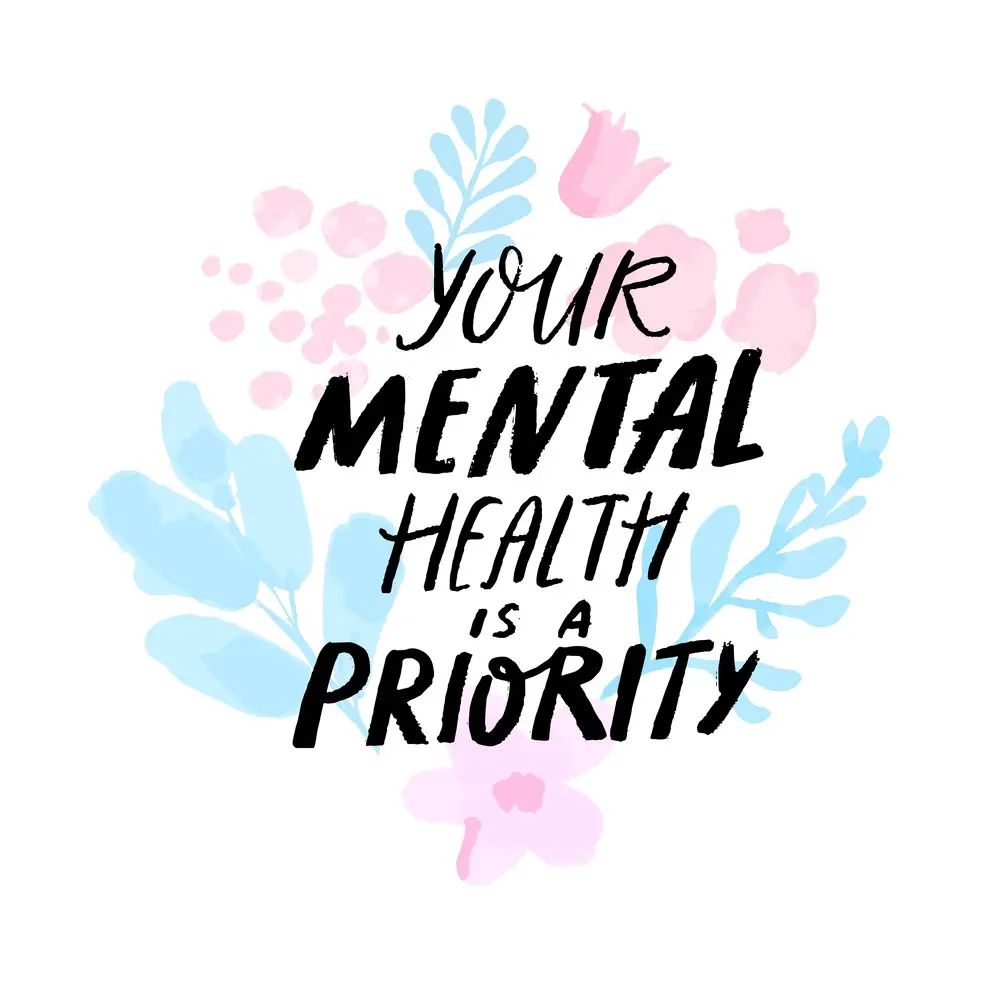As a BetterHelp affiliate, we receive compensation from BetterHelp if you purchase products or services through the links provided
Looking to keep clients focused on their therapy objectives? We’ve consulted various professionals, such as Therapists and Coaches, to share their top 10 strategies. From the power of regular reminders to the benefits of involving your support network, these expert tips will guide you in staying committed to your therapeutic journey.
- Use Constant Reminders
- Take Personal Responsibility
- Expect and Plan for Resistance
- Maintain Consistency With Changes
- Identify Your Motivations
- Remember Your “Why”
- Set Realistic Goals
- Use Journaling for Clarity
- Be Flexible With Your Goals
- Share Your Goals With Loved Ones

1. Use Constant Reminders
Visibility is essential. When creating new habits and goals, the brain needs to be reminded constantly; otherwise, it will revert to what it’s used to (what we know as homeostasis).
I often suggest that clients put reminders on their phones—even setting the alarm to go off periodically during the day—or place notes where they will see them (mirrors, car dashboards, closet doors, or kitchen cabinets).
This works for tangible goals like “meditate for 10 min a day” and concepts your therapist encourages you to be curious about, like “How does my survival strategy of people-pleasing show up in my life now?” Help your brain keep these new goals front and center.
Kristine Galli, LMFT, Revive Counseling and Wellness, LLC
2. Take Personal Responsibility
Staying committed to therapeutic goals outside a weekly hour-long therapy session is critical to achieving therapeutic aspirations. One hour a week, where accountability can be solely on the therapist, is insufficient for client goal attainment.
Each client must pursue the discomfort of change in their world by modifying their lifestyle with healthy new habits and challenging unhealthy perspectives, leading to personal growth.
Client growth and resilience nearly always come from emotional discomfort, where that discomfort is an indicator of a positive client therapeutic trajectory. Clients must be communicative and advocate with their therapist about what is or is not working. This way, needs can be met in maintaining commitment.
Last, a client’s challenges did not manifest overnight. Goal achievement will take time, patience, and grace on their path to personal and interpersonal growth.
Adam Ratner, Co-Owner, Supervisor, and Therapist, Grow Wellness Group

3. Expect and Plan for Resistance
Committing to goals can be initially cathartic, but it isn’t easy to maintain over the long term. To be successful, it’s helpful to follow this two-step process:
First, expect to regularly hit an emotional “wall,” during which you feel the urge to give up. Second, plant reminders for yourself throughout your life, highlighting why you committed to this specific goal.
For example, I have a client who has a phobia of driving. He wants to drive so that he can better care for his daughter. So, he printed off small photos of her and taped them to his bathroom mirror, dashboard, phone, bed frame, etc., to serve as a reminder.
This strategy can help you be realistic and transcend your mind’s natural propensity to give up on stuff.
Steven Hryniewicz, Therapist, Pax Therapy Solutions, LLC
4. Maintain Consistency With Changes
The most important tip for staying committed to therapeutic goals is consistency. It’s essential to understand that substantial progress happens gradually over time, achieved through small, consistent steps.
You must build trust and confidence while establishing new, supportive habits to reach therapeutic goals. This rewiring of the brain and the creation of recent stories and neural pathways takes time as it is based on repetition.
Remaining consistent in your efforts helps build commitment over time because, although setbacks and obstacles are inevitable, what truly matters is the ability to return to these goals repeatedly.
Recognizing and celebrating every achievement, no matter how small, helps you stay on course by acknowledging real-life progress that ensures inspired commitment.
Nakita Devi, Breath Therapist and Somatic Coach, Limitless Living Space
5. Identify Your Motivations
As a licensed clinical social worker, I recommend one tip for clients on staying committed to their therapeutic goals: identifying their specific motivations.
The client can keep them written in a journal, listing all the reasons they would like to achieve particular goals and what is motivating them, as well as saying them out loud. Both writing about and talking about them can help clients put them into action.
Jennifer Zator, Mental Health Therapist, Peace and Wellness Therapy Services, LLC
6. Remember Your “Why”
One tip for clients to stay committed to their therapeutic goals is to “remember the why.” Why is your goal important to you? Remembering our “why” and intentionally meeting our goals is important during the therapeutic process.
It can also be helpful to connect your “why” to a value you have. We are much more likely to achieve our goals when we connect them to a value, as living in tune with our values helps our overall mental and emotional health.
Therapy can be tough and difficult at times; it’s not always easy and fun—but remembering our values and “whys” makes that commitment to our goals much more manageable.
Amanda Marks, Psychotherapist, Resilient Counseling

7. Set Realistic Goals
Ensuring they are not unrealistic can help you stay committed to your therapeutic goals. Your therapist will help you assess your therapeutic goals, and it’s important that you, as the client, understand that certain things are unachievable. For example, a goal such as “I want to get to a point where I have zero anxiety ever again” is mostly unrealistic.
As a therapist, how I may help you reframe that goal would be: “I want to gain skills to help cope with and manage my anxiety so that it’s no longer debilitating.” Mindset is everything. It’s about building your therapeutic goals with realistic expectations.
My follow-up tip is to write your goals down, talk about them in therapy, keep reassessing, and be honest about your struggles. It takes time.
Allie Wojcik, Mental Health Therapist, Diversified Health and Wellness Center

8. Use Journaling for Clarity
In my experience, journalism mirrors one’s psyche, reflecting both fleeting emotions and deep-seated patterns. You gain clarity and witness your evolution by consistently documenting your feelings.
This tangible record can motivate you, showing you the peaks and troughs of your therapeutic journey, and revisiting those thoughts later can reveal your personal resilience and growth.
Besides, structured prompts or free-writing can unearth hidden emotions, offering a deeper understanding and commitment to your therapeutic goals.
Bayu Prihandito, Certified Psychology Expert, Life Coach, and Founder, Life Architekture
9. Be Flexible With Your Goals
Staying on course with a therapeutic goal may only sometimes be advisable. Although individuals seek therapy to help achieve a goal they have set for themselves, they occasionally miss the mark. If, for example, someone seeks therapy to “have a good relationship with my mother,” but as the therapy proceeds, it becomes clear that the mother is personality-disordered.
She may be impossible to please, hostile, and argumentative. This new revelation makes establishing or nurturing a healthy relationship impossible. In such a case, the therapeutic goal may be impossible to achieve and harm the client’s welfare.
Setting boundaries and managing interactions with one’s mother may be a more sound aim. At other times, unrelated but important matters may surface during therapy. Exploring those experiences and feelings may be more meaningful and helpful to the patient than adhering to the set goal. Sometimes, adjusting a goal or letting it go completely is more advantageous.
Terri DiMatteo, Licensed Professional Counselor, Open Door Therapy
10. Share Your Goals With Loved Ones
Share your goals with loved ones who can support you and even gently check in on your progress. Accountability helps, but it needs to feel encouraging, not criticizing.
Be compassionate with yourself if you hit roadblocks. Remind yourself that growth isn’t linear, and then reflect on what you’ve learned by examining where things went off track. Getting back on the path takes patience and self-care. With commitment, progress will come in its own time.
Mona Kirstein, Ph.D., Digital Strategist, Holistic Coach and Consultant, The Wholehearted Path

Put These Tips into Action Now!
Now that you’ve soaked up all that expert wisdom let’s simplify things. Time to distill those insights into actionable steps you can start applying immediately.
- Constant Reminders: Set multiple reminders on your phone or sticky notes around your living space. Make them visible and unavoidable.
- Personal Responsibility: Initiate one new positive habit this week, no matter how small. Own your change.
- Plan for Resistance: Identify when you’re likely to resist your goals. Have a motivating photo or phrase ready to look at during that time.
- Consistency: Dedicate specific times in your week to work towards your goals. Consistency beats intensity.
- Know Your Motivation: List three core reasons for pursuing this goal. Keep this list on your phone or somewhere accessible.
- Remember Your Why: Connect your goals to your values. When things get tough, this will be your anchor.
- Realistic Goals: Take a look at your goals. Are they realistic? Reframe any that seem unattainable.
- Journal: Spend 5 minutes every evening jotting down your thoughts. It’s a reflection time that pays off big.
- Flexibility: Life changes; your goals can too. It’s okay to adjust them as you go along.
- Share Your Goals: Tell a friend or family member about your goals. Choose someone who will be supportive, not judgmental.

Implementing These Expert Tips
You’ve heard the experts, now what? To make their advice truly transformative, let’s look at ways to swiftly and effectively implement their recommendations.
Choose Your Top Three Tips
Start by picking the three tips that resonate the most with you. This prevents overwhelm and makes it easier to focus. For example:
- Tip 1: Set Constant Reminders. Create calendar alerts right now.
- Tip 2: Take Personal Responsibility. Write down your commitments.
- Tip 3: Use Journaling for Clarity. Buy a dedicated therapy journal.
Create Mini-Action Plans
For each tip, jot down what “success” looks like and how you’ll know when you’ve achieved it. These can be your benchmarks.
Buddy Up
If possible, share these goals and mini-plans with someone you trust. This adds a layer of accountability and an external perspective.

Setting Goals and Monitoring Progress
Setting goals and monitoring your progress is like creating a roadmap for your therapy journey—knowing where you’re headed makes the trip smoother and more meaningful.
SMART Goals
Use the SMART framework for setting your goals:
- Specific: Aim for a clear, focused goal.
- Measurable: Make sure you can track your progress.
- Achievable: Aim for realistic and doable outcomes.
- Relevant: Ensure the goal aligns with your overall therapeutic objectives.
- Time-bound: Set a deadline for your goal.
Regular Check-ins
Continuously track how you’re doing. Here’s how:
- Therapy Sessions: Use the time to update your therapist on your progress.
- Personal Journal: Make a habit of documenting feelings, setbacks, and wins.
- Accountability Partners: Regularly update your trusted friend or family member.
Reflect and Readjust
Look back at your goals every month. This is an excellent time to celebrate your wins and reassess what’s not working.
Remember, therapy is a process. It’s okay to tweak your goals, adapting them to new insights and circumstances. What’s important is staying committed and proactive in your healing journey.
Jacob Maslow
After surviving the traumatizing events of 9/11, I took it upon myself to heal through helping others. I’m the primary caregiver of my children and understand from first-hand experience the lonely paths you have to walk as a partner and parent when leaving an unhealthy relationship.
We’re all echoing in a dark space that doesn’t have to be this empty, and that’s been my mission since finding solace and recovery in therapy: To help comfort others who are still in shock and at the prime of their struggle.
I came across BetterHelp after searching for this type of community. I wanted to belong to a body of proactive therapists and supportive therapy veterans that allowed me to see other sides of the story.
It was unconventional, and that’s what attracted me most. During my most challenging times, when my ex-wife completely cut me off from my children, I found comfort and clarity through BetterHelp.
Instead of being chained to a strict therapist recommendation, I was in charge of who I felt understood my struggle most. That allowed me to find my true peace, as I was reunited with those who read behind my words and had first-hand experience with my trauma.
Recovery is a choice; with BetterHelp, that choice will be a few clicks away. You can join their couples-oriented platform, Regain.us, for those stuck with family estrangement and toxic relationship patterns.
- How to Transform a Home’s Patio Space into a Relaxing Space - March 23, 2025
- 5 Strategies to Use a Cell Phone to Help Manage Your Stress - March 23, 2025
- 4 Ways to Use Measurements to Create a Relaxing Sleep Space - March 23, 2025
This site contains affiliate links to products. We will receive a commission for purchases made through these links.



